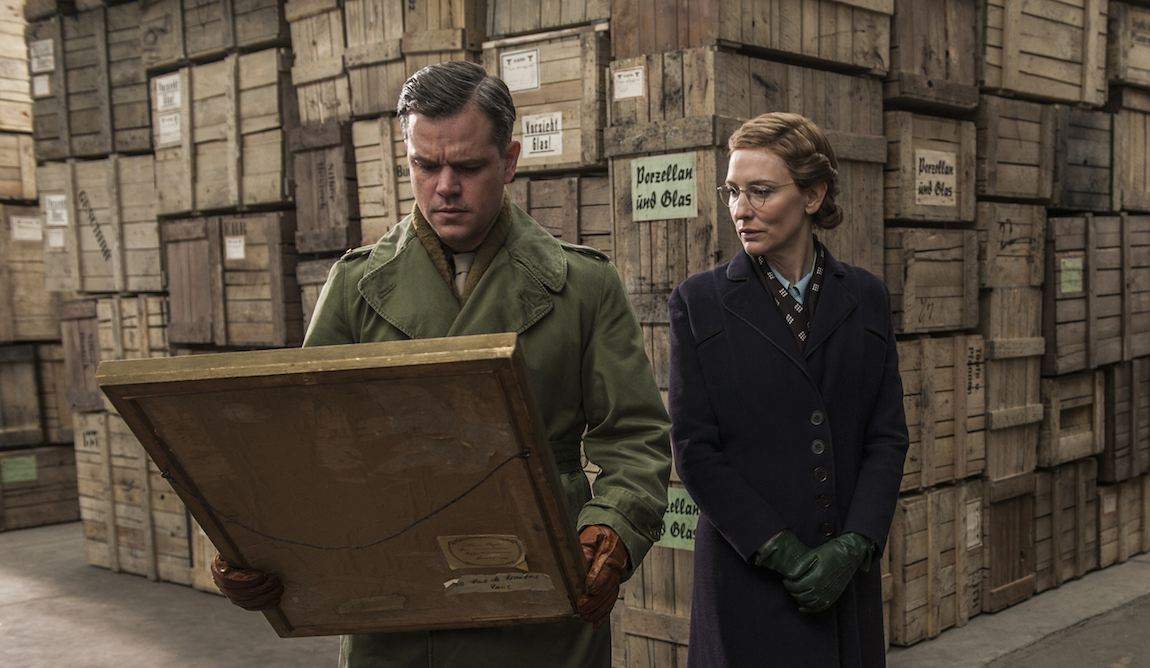The Monuments Men
On paper, this is George Clooney's perfect film. So why does it fall flat?
Overview
It seems it's not enough for George Clooney to simply write, direct and act in compelling stories — they also need to be important. They need to have meaning. They need to prove the Hollywood machine isn't a Sophie's Choice between entertainment and education. As an audience member, Clooney wants you to know you can have both and you should have both, and with Goodnight and Good Luck, Syriana and The Ides of March, he made his point well.
Then came The Monuments Men, and — on paper at least — it seemed he'd found his perfect project. Based on true events, the story is endowed with all the elements of an old-time war classic: a rag-tag bunch of recruits, a secret mission behind enemy lines and — most importantly — importance. Not only was this a film set in one of the 'good wars' (WWII) but it was centred around something far more 'meaningful' than a conflict over territories and ideologies. This was about art; about buildings, monuments, history and enlightenment. As Clooney's character explains, "If you destroy an entire generation of people's culture, it's as if they never existed."
For that reason, the eponymous 'Monuments Men' were dispatched to Europe charged with protecting the continent's great works from both thievery and ruin on both sides of the War. It is, in all, a fascinating, beautiful and mostly untold tale of courage and dedication — the only problem being, the film doesn't do it justice.
It's a tonal defect more than anything else. The first half strays so close to comedy it almost feels like Stripes meets Saving Private Ryan (and not just because the antiquities troupe boasts both Bill Murray and Matt Damon). The music, especially, is distractingly full of pomp and pageantry, a sort of Oh! What A Lovely War without the irony. As the team disembarks to one particularly sanguine number on the beaches of Normandy, you find yourself thinking: "…you guys do know what just happened here, right?"
It is, to be fair, a somewhat defensible flaw, since the Monuments Men did enter the latter stages of the war thinking it more an adventure than a perilous and uncertain undertaking. Moreover, as the reality of their situation makes itself devastatingly apparent, so too does Alexandre Desplat's score shift moods, but from then on, the tonal problems are replaced by shortcomings in both pacing and subtlety.
Rarely a quiet moment is permitted to pass without Clooney's Lt. Frank Stokes reminding his brothers in art why they're there, or repeatedly asking (then answering) whether a man ought rightly give his life for antiquity. Similarly, when there is action, it comes so quickly and so sporadically and in so many different locations that it robs the film of both suspense and cohesion.
It's not a bad movie, and with a top-heavy ensemble cast that also includes Cate Blanchett, John Goodman, Bob Balaban and Jean Dujardin, the performances were never going to be a problem. It's just that — with a few excellent scenes notwithstanding — The Monuments Men feels altogether flat and expressionless, like a punctured tyre that gets you to your destination yet denies you the pleasant diversion along the way.





